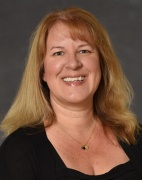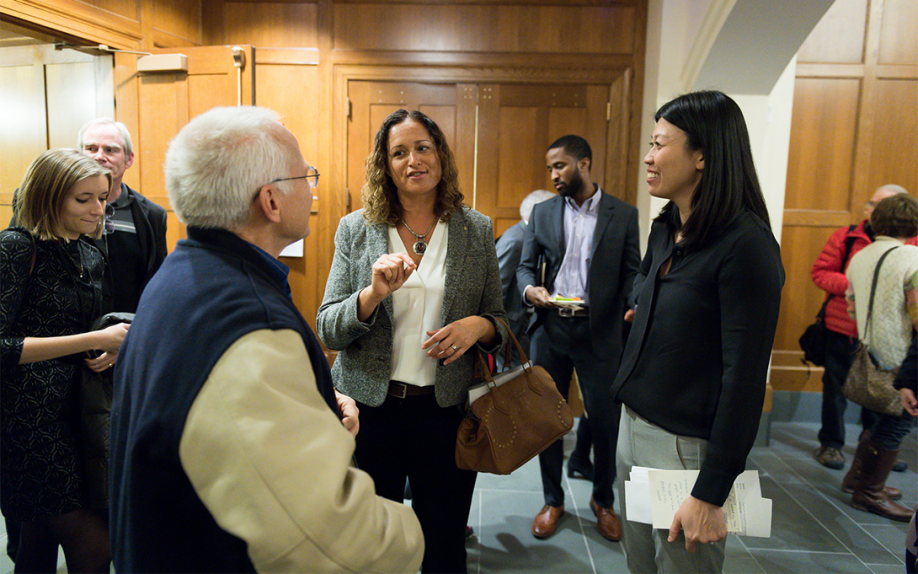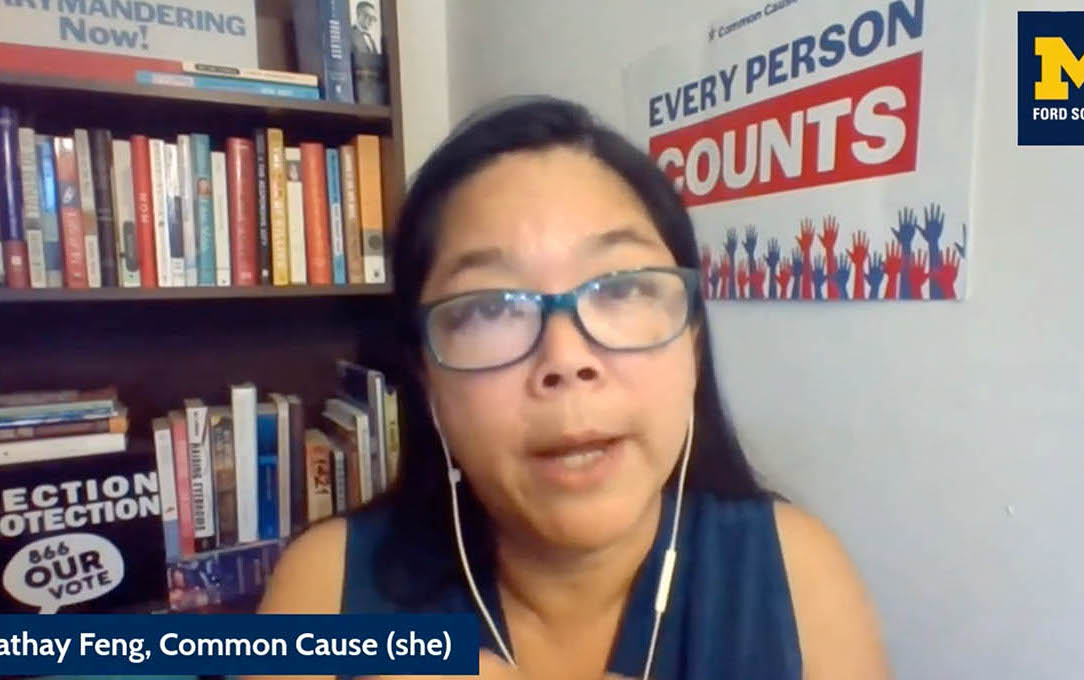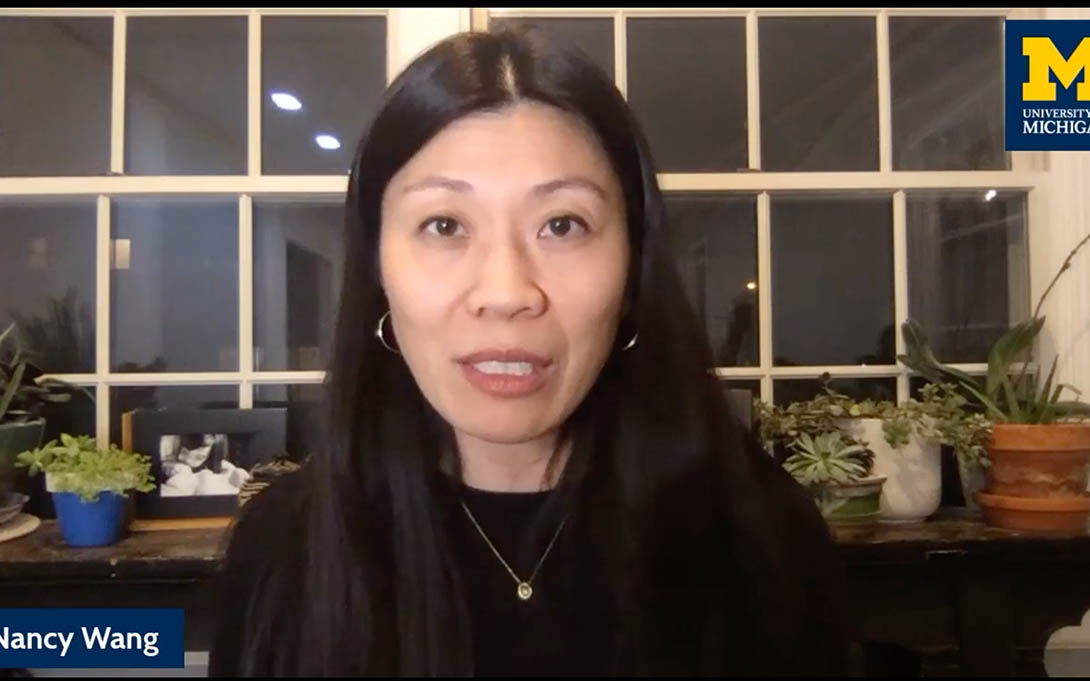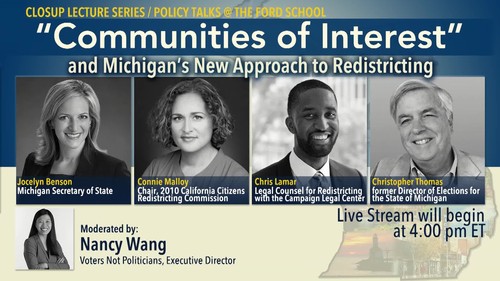Michigan Redistricting Project
In November 2018, the citizens of Michigan passed Proposal 2, which amended the Michigan Constitution to place congressional and state legislative redistricting in the hands of a new Michigan Independent Citizens Redistricting Commission (MICRC) composed of thirteen citizens. One of MICRC's highest priorities was to redraw the new district maps taking into account 'communities of interest,' or COIs.
CLOSUP launched its Michigan Redistricting Project in the summer of 2019 to assist the State of Michigan and the MICRC with this new approach. The initial stages of the project identified potential concepts and definitions of COIs based on experience in Michigan and across the U.S., and best practices to consider. CLOSUP also assisted MDOS in planning for the launch of the MICRC, and in training the MICRC, and also conducted research to build a contact database of potential COIs in Michigan (although the list will never be complete: there is no definitive list of COIs in Michigan).
Michigan redistricting: A model for the nation? Evaluating the state's new maps and process
Launching MICRC
-
Criteria and Public Hearings Sep 17, 2020
-
Redistricting 101 Sep 18, 2020
-
Michigan Demographics & the Census Dec 3, 2020
-
Continuing Education – Mapping Practice-Ohio Maps Mar 30, 2021
Public events
CLOSUP also hosted panel discussions and webinars with experts on the state's new approach to redistricting, and on making public hearings fair and effective.
Michigan redistricting: Making public hearings fair and effective
News
View allHave any questions?
